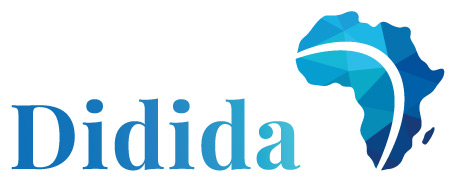Advancing Malaria Control: Integrating ConnDx and DIDIDA for Enhanced Diagnostic and Treatment Solutions
Introduction
End of May, I traveled to Geneva to present on behalf of our Kenyan DIDIDA PhD student, Felix Bahati, on our connected diagnostic (ConnDx) malaria project in Kisumu, Kenya and its implementation within Didida. Having me travel there from Europe rather than Felix from Africa was an attempt to reduce carbon imprint, a topic of ever-increasing concern when talking about global health.
World Health Assembly 2024
The World Health Assembly 2024 in Geneva brought together health leaders from across the globe to discuss the theme “All for Health, Health for All” from 27 May to 1 June. Highlighted topics were strengthening health systems, emergency preparedness, climate and health, digital health innovations for efficient and accessible healthcare, and community inclusiveness.
Presentations on ConnDx
I held a 10-minute presentation with a 5-minute Q&A at the Geneva Digital Health Forum and a 5-minute pitch during Geneva Digital Health Day. Both presentations were about using ConnDx as an AI-driven digital approach to revolutionize malaria service delivery to patients and at the same time improve malaria surveillance potential. ConnDx brings better malaria services closer to individual patients while complementing public sector health efforts by collecting malaria data from the private sector too. Combined public and private results can result in more comprehensive near-real-time dashboards, which ultimately can support policymakers in allocating scarce malaria resources to places where these are needed most.
The Last Mile for Malaria Elimination
When it comes to the last mile for malaria elimination, it is clear we cannot continue with ‘business as usual’. In addition to better implementation of the currently existing ‘toolbox’ of malaria interventions (bed nets, repellents, vaccination, preventive or curative treatment), other innovative efforts are needed. Here in Geneva, on behalf of DIDIDA PhD student Felix, I had the pleasure of presenting something really new and different.
Integration with DIDIDA and New Technologies
The work done in ConnDx feeds into DIDIDA’s efforts, creating a robust implementation case for the technology developed by ConnDx. DIDIDA has now helped to establish an implementation case of this technology, which will be combined with our new multiplexed technology tool. This combination aims to further enhance diagnostic capabilities and treatment precision, thereby improving overall malaria control and elimination strategies.
Advantages of ConnDx
ConnDx for malaria enables us for the first time to actually ‘look over the shoulder’ of both the public and private health sectors regarding malaria diagnosis. This provides invaluable time-labeled and geo-tagged information on malaria incidence in semi-real time. Moreover, ConnDx opens attractive mechanisms to increase transparency and efficiency of financing malaria services.
Conclusion
All in all, we conclude that digital innovations integrated within the health system, such as ConnDx, can complement the existing ‘toolbox’ and accelerate efforts toward ending malaria. The data generated by ConnDx serve both the individual patients by providing better-quality care as well as the society by providing a better overview of the dynamics of malaria outbreaks. This can ultimately result in better-targeted malaria interventions by local authorities, which is to the advantage of the individual patients in return.
Lisette Schutte, Amsterdam, June 19, 2024
Initial information on ConnDx for malaria can be found at:
https://www.ncbi.nlm.nih.gov/pmc/articles/PMC8335459/
https://www.researchsquare.com/article/rs-3920604/v2
For most up-to-date information, please contact:
• Felix Bahati: bahatifelix@gmail.com
• Lisette Schutte: l.schutte@pharmaccess.org
Background of ConnDx
Sub-Saharan Africa (SSA) faces significant challenges in accurate diagnosis and treatment of diseases, with laboratory infrastructure being underdeveloped and resources scarce. As a result, febrile illnesses like malaria are often diagnosed presumptively, leading to over-prescription of antimalarials and antibiotics. SSA bears a heavy malaria burden, with the region accounting for 93% of global cases and 94% of deaths in 2018. Funding for malaria control is stagnant, compounded by the impacts of COVID-19.
The emergence of digital technologies provides new solutions. Mobile phones are widespread in Africa, and digital payment systems like M-PESA are revolutionizing financial transactions. PharmAccess has leveraged these technologies to create M-TIBA, a mobile health wallet linking payments and healthcare data.
This study introduces a digital approach, ConnDx, in Kisumu, Kenya, combining digital diagnostics and M-TIBA to improve malaria diagnosis and treatment. ConnDx uses digital readers to interpret rapid diagnostic tests (RDTs), storing results in cloud databases and linking them to mobile health wallets. Patients with positive diagnoses receive funds for treatment, ensuring correct and timely care.
The study, conducted from October 2017 to December 2018, tested ConnDx in five private health providers in Kisumu. Results showed a significant reduction in over-prescription of antimalarials and improved diagnostic accuracy. The study highlighted variations in malaria positivity rates across providers and identified areas with higher transmission rates. Interviews with healthcare providers indicated positive reception of ConnDx, citing easier and faster diagnostics and expanded access to treatment.
ConnDx has the potential to enhance malaria service delivery efficiency, reduce costs, and provide valuable real-time data for malaria management. The study demonstrates ConnDx’s effectiveness and feasibility, suggesting it could be scaled up for broader healthcare applications and integrated into national health systems.
Background of Didida
The DIDIDA project, funded by the European Union and UK Research and Innovation, focuses on developing low-cost, mobile phone-connected diagnostic tools to detect multiple diseases in sub-Saharan Africa. This collaboration between Europe and Africa aims to enhance research and innovation capacity in Africa through training, staff exchanges, and PhD scholarships. DIDIDA leverages bioengineering and digital healthcare to improve infectious disease diagnostics and supports local manufacturing and community engagement for better health outcomes.
Want to know more?
Are you a student and you want to learn more? A researcher seeking to consult our publications? A citizen eager to better understand the issues? A decision-maker who can promote this innovation? A journalist looking for an engaging story to tell?
